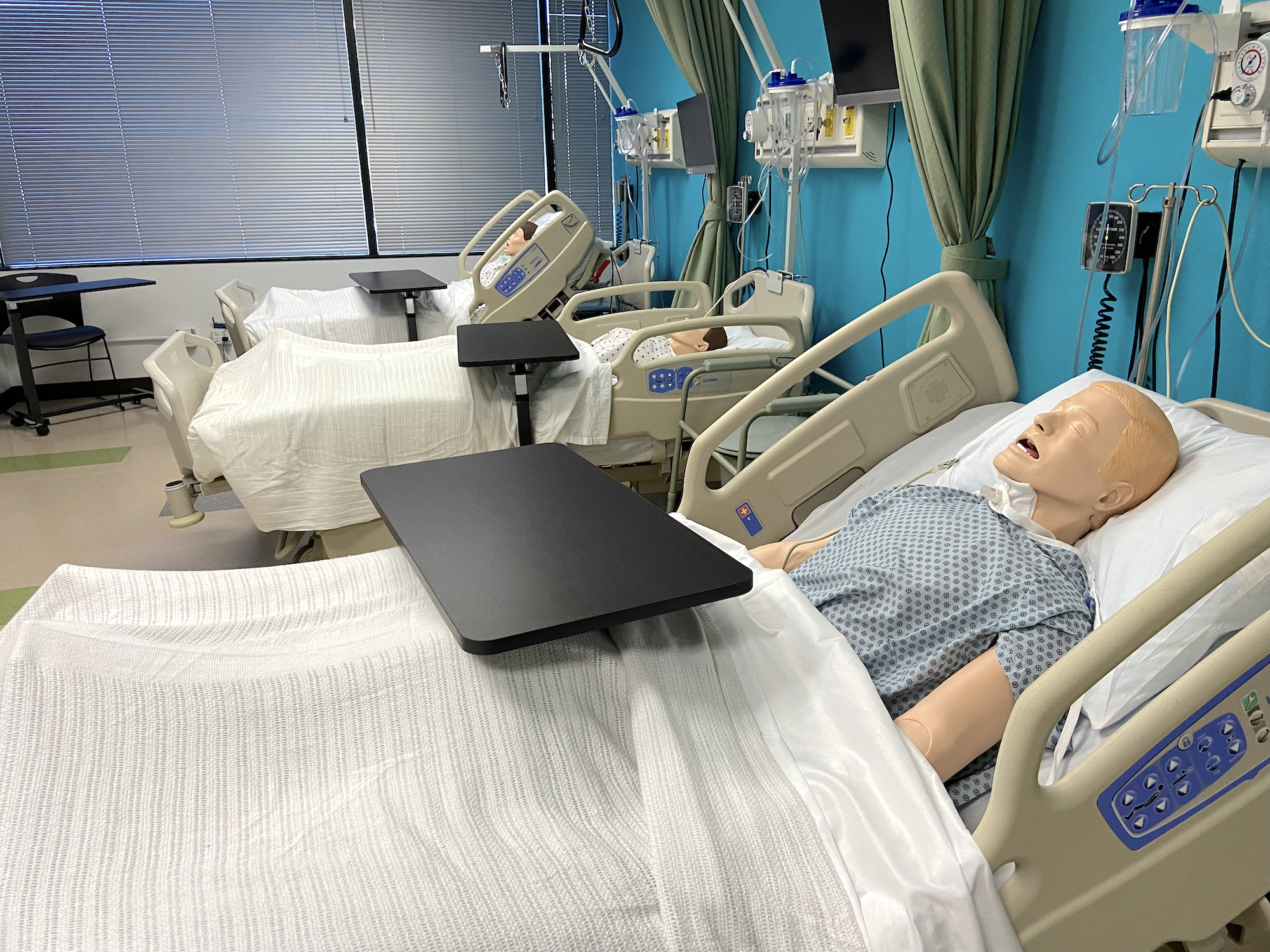Andrea Burdette, left, ICU nurse director at Northern Nevada Medical Center in Sparks, administers a COVID-19 vaccine to Dr. Robert Dalrymple. Photo: Northern Nevada Medical Center
 Unitek College in Reno, which opened in June 2020, has clinical simulation labs for students pursuing a career as a nurse or medical assistant. Photo: Kaleb M. Roedel / NNBW
Unitek College in Reno, which opened in June 2020, has clinical simulation labs for students pursuing a career as a nurse or medical assistant. Photo: Kaleb M. Roedel / NNBW
Comments
Use the comment form below to begin a discussion about this content.
Sign in to comment